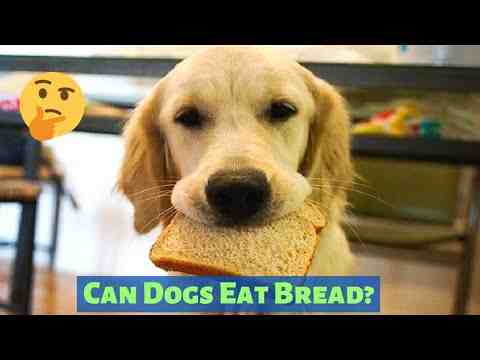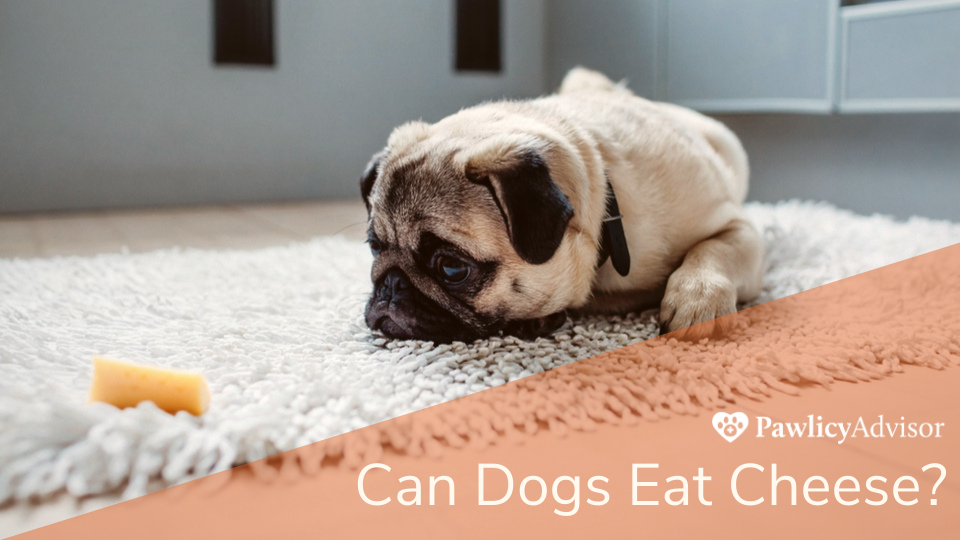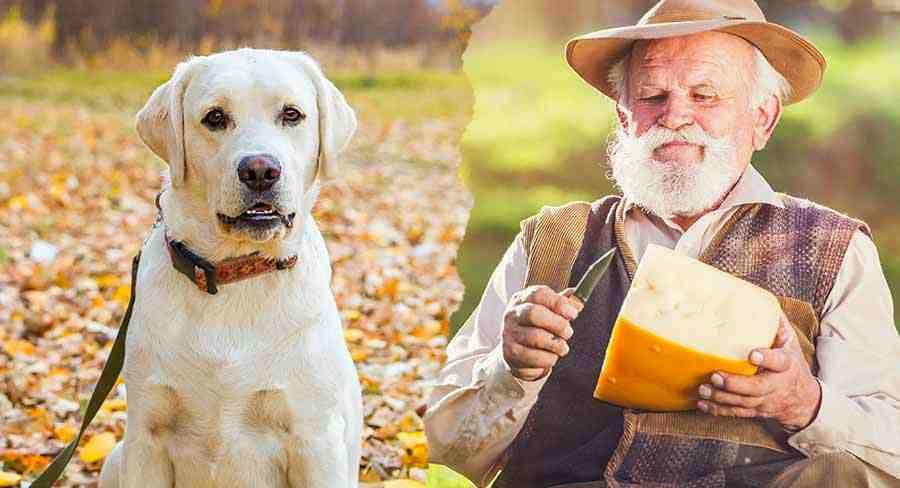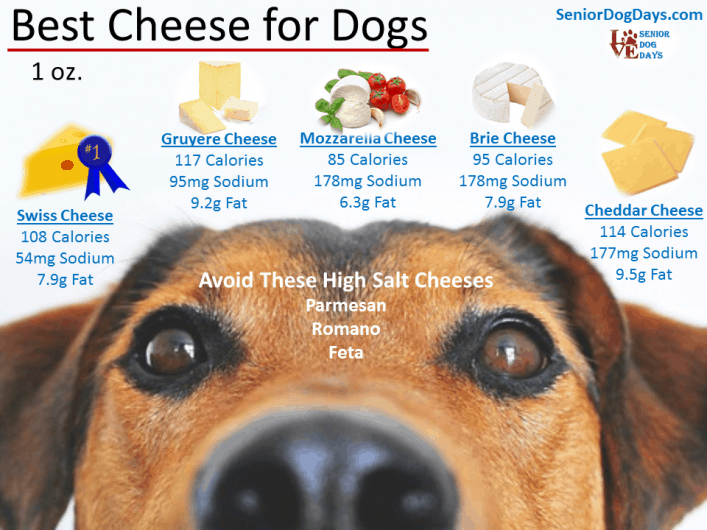Most dogs tolerate cats from their owners well. Some may even associate kisses with love and care, and many even enjoy the kisses of their fellow human beings. They will often show their happiness by wagging their tails, looking alert and happy, and licking you on the back.
Why is my dog throwing up everything he eats?
Your dog may throw away everything it eats because it just eats it too fast. When a dog eats too fast, the kibble pieces are not properly chewed and a lot of air is also swallowed along with food. This may interest you : Can dogs have bananas?. This leads to food, and air, being pushed back.
Why does my dog always bark after eating? If your dog eats his food too fast, he may have a problem with poor digestion, which can cause him to vomit. Other symptoms, such as inflammation, may indicate that her condition may worsen. Adding fresh food to your dog can lead to stomach upset and make you vomit.
What to do when your dog throws up everything he eats?
If your dog is unable to stop vomiting after eating food and grass, bring it to a veterinarian or emergency veterinarian as soon as possible. There may be something wrong. On the same subject : What happens if a dog eats hot dogs?. He may have an infectious or systemic disease, he may have a foreign body or even a twisted stomach.
What can I give my dog to stop vomiting?
Make your dog a bunch of rice, white peeled chicken, and cottage cheese. You can also use hamburger meat cooked and extracted fat. At first feed your dog this empty food and once 4 hours have passed without vomiting, then you can give your dog a little.
When should you be concerned about a dog throwing up?
If your dog vomits frequently, or vomits frequently, you should call your veterinarian immediately. Vomiting is a symptom of many serious illnesses, illnesses, and complications, and we as owners owe our dogs a serious consideration. Ignoring your dog’s vomiting can have serious, even fatal, consequences.
When should you be concerned about a dog throwing up?
If your dog vomits frequently, or vomits frequently, you should call your veterinarian immediately. Vomiting is a symptom of many serious illnesses, illnesses, and complications, and we as owners owe our dogs a serious consideration. This may interest you : Can dogs eat Spam?. Ignoring your dog’s vomiting can have serious, even fatal, consequences.
How do I know if my dog throwing up is serious?
In addition, you should seek the help of a veterinarian if your dog shows any of the following symptoms that accompany vomiting:
- Loss of appetite.
- Change of drainage frequency.
- Change in thirst.
- Blood in the vomit or stool.
- Unusual or intense laziness.
- Diarrhea.
- Koaleha.
- White or white gums.
When should I take my dog to the vet for vomiting?
Vomiting or Diarrhea It is not uncommon for your dog to vomit 2-3 times in 10 minutes and then recover. If your dog vomits three or more times in eight hours, you should worry. If there is blood in any of them, you should take your dog to a veterinarian immediately.
Why is my dog throwing up all his food?
If your dog vomits because it eats too fast try feeding slowly to help them slow down. Slow feeders are designed to prevent your pet from eating its food too quickly. They may have columns or canals on which food will sit so that your pet can eat around the distractions.
Why is my dog throwing up undigested food?
A puppy that throws up uncut food can be caused by food poisoning, anxiety, overeating or overeating. If bright red blood is found, the abdomen may become sore; if the blood is brown and looks like coffee grounds, the problem may be in the gut.
What to do when your dog throws up everything he eats?
If your dog is vomiting even after not eating or drinking, it is a sign that something more serious may be happening and you should see your doctor immediately- hang.
Is peanut butter bad for dogs?

Yes, dogs can eat peanut butter as long as it is fed moderately and without xylitol, so get out of that safe peanut butter jar and preach the good news.
Can peanut butter make dogs sick? Dogs can eat â € “and many enjoy â €“ peanut butter. But note, some types of peanut butter contain a compound called xylitol, which is toxic to dogs and even small meals can be fatal. Xylitol is a synthetic sweetener that is often used in food to store this sugar product.
What brand of peanut butter is bad for dogs?
Go look for fresh peanuts Peanut butter your dog should have only peanuts. Many types of peanut butter shop will do but always read the letter. Avoid large peanut butter products such as Jif, Peter Pan, and Skippy, which often contain extra sugar.
What supermarket peanut butter is safe for dogs?
Peanut butter sitting in your pantry is probably safe for your dog. The most popular varieties of peanut butter, such as Jif, Skippy, Smuckers and Peter Pan all do not contain xylitol.
What brands of peanut butter contain xylitol?
There are currently five types of peanut butter using xylitol: Go Nuts Co., Krush Nutrition, Nuts’ N More, P28 Foods, and Protein Plus PB.
Why is peanut butter harmful to dogs?
No, dogs cannot eat peanut butter. Even peanut butter suitable for dogs should not be fed to dogs, it contains anti-inflammatory ingredients, harmful mold, fatty acids and is associated with heart disease and obesity. My advice to you is to completely cut it off from your dog’s diet. Documents are far more harmful than beauty.
What type of peanut butter can dogs eat?
Peanut butter sitting in your pantry is probably safe for your dog. The most popular varieties of peanut butter, such as Jif, Skippy, Smuckers and Peter Pan all do not contain xylitol.
Is peanut butter unhealthy for dogs?
Most peanut butter is safe for dogs to eat, and in moderation peanut butter can be an excellent source of protein and healthy fats, vitamins B and E niacin.
How much peanut butter can a dog have?
If this is the first time your dog is eating peanut butter, giving it a small dose (about half a teaspoon twice a day for a small dog) can help ensure that it will not -have adverse effects. Medium or large dogs can be given a teaspoon of peanut butter twice a day, max.
How much peanut butter is toxic to dogs?
Generally, small dogs should not get more than 1/2 teaspoon of peanut butter a day and large dogs should not get more than 1 teaspoon.
Can peanut butter hurt a dogs stomach?
So, yes, many types of peanut butter are well suited for a healthy dog, but you should only give it as a moderate treatment. Some dogs will get upset when they finish eating a little or a lot of peanut butter. In most cases, the symptoms resolve quickly and you avoid feeding your dog again.
What cheese Can dogs not eat?

Make sure you stay away from cheese like blue cheese and Roquefort. Not only are these cheeses high in fat, but when overcooked, they can produce roquefortine, a danger that dogs can use. Also, stay away from cheese with herbs and garlic like Havarti or cream cheese.
Is Cheddar Cheesy for Dogs? Known as one of the most popular cheeses, cheddar cheese is a good choice to consider giving your dog as it is also a low-lactose cheese.
Is any cheese poisonous to dogs?
Cheese itself is not toxic or toxic to dogs (except for blue cheese, see below). But some cheeses contain added ingredients that can cause harm to the dog, such as onion, garlic, herbs or other supplements.
Is mozzarella poisonous to dogs?
Easy Cheese (New Cheddar, Mozzarella, String Cheese) All the basic cheeses available in the house are safe for the dog to eat in moderation. Mozzarella or other soft cheeses are high in fat, so if you would like to share a slice with your pooch from time to time, try getting a low-fat cheese.
Will a little bit of cheese hurt my dog?
According to the ASPCA, “because pets do not have a large amount of lactase (an enzyme that breaks down lactose in milk), milk and other dairy products cause them to have diarrhea or other digestive problems. food. ” Diet: Do not give your dog cheese as part of its regular diet plan or as a frequent remedy.
What kind of cheese is good for dogs?
Therefore, it is best to feed your dog low-fat cheeses, such as mozzarella, cottage cheese or soft goat cheese. Cottage cheese is lower in fat and sodium than other cheeses, helping to reduce the risk of obesity. Cottage cheese is also low in lactose, thus reducing the risk of gastrointestinal upset.
How much cheese is OK for dogs?
Most dogs are able to handle cheese for less money and it really depends on the type of cheese being offered. â € œAs with all supplements, milk supply should be reduced, â € says Summers, who recommends that cheese and dairy products make up less than 10 percent of the dog’s total calories to avoid food balance.
What cheeses can dogs not eat?
However, your dog should not eat cheeses with blue veins, including Dutch blue, Stilton, Roquefort, Cabrales, or Gorgonzola, as they can be toxic to dogs. Because cheese is as fat as it tastes good, moderation is important. Make sure your dog does not tolerate lactose before you start giving cheese as a treat.
Can dogs eat Cheetos?

Cheets fall into this category of unhealthy foods, and dogs should not eat them as part of a healthy diet. Do not be alarmed if you have fed Cheetos dogs before, as they are not poisonous or extremely harmful to them. Feeding them once or twice will not be harmful.
Why do dogs love Cheetos? Dogs love rough Cheetos because they like to eat rough food. Because of the salt and plenty of corn, you should not feed your crunchy Cheetos dog. What is that? If they sneak into the bag and eat it, make sure they drink plenty of water and don’t let them eat anything with salt all day.
What happens if a dog eats 1 Hot Cheeto?
While a pull or two will not hurt your dog, eating Cheetos in excess causes salt that leads to sodium poisoning, vomiting, fever, diarrhea and falls. If your dog is eating Cheetos, drinking too much salt can cause death to your dog. So, be careful!
How many hot Cheetos can a dog eat?
One cut can not cause problems. The issue of feeding Flamin ‘Hot Cheetos dogs may arise as a result of drinking more than one drink. If your dog eats a lot of Flamin ‘Hot Cheetos, it is best to call your veterinarian and ask what to do.
Are cheese puffs OK for dogs?
Despite their varied tastes, not all foods are safe for dogs. Cheetos or Cheese puffs will not be a problem because they may not have enough salt to cause serious health problems, but Cheese Balls may damage their stomach due to the natural very snacky.
Are puffs safe for dogs?
Can Dogs Eat Baby Puffs. Many dog owners buy baby puffs and give one or two at a time as dogs. As long as your dog has no food-related items, these are safe to eat and a good choice.
Can you feed dogs scrambled eggs?

How To Feed Your Dog’s Eggs. Eggs should be boiled before being given to a dog. Boil or boil eggs without oil, butter, salt, spices, spices or other additives. It doesn’t matter how much your dog likes his eggs – on the side, fried, or hard-boiled – as long as they are boiled.
Are scrambled eggs good for dogs? But should your dog eat boiled eggs? Yes. Well-cooked boiled eggs are safe for your dogs to eat.
How do you make scrambled eggs for dogs?
Make Eggs for Dogs: The last Egg Recipe that your pet will love
- Put the egg in a bowl and mix this vigorously with a fork.
- Put in a hot skillet with a little water to help avoid sticking to the pan.
- With a spatula roll this egg around, creating a confusing look.
- Once the egg is gone, serve your dog!
What do you add to scrambled eggs for dogs?
Your dog will love cooled eggs without butter, salt or pepper. There are rumors that boiled eggs can help and make their clothes shine. Play it safe by buying eggs from a local farmer who raises a natural, free-range chicken.
Do you put milk in scrambled eggs for dogs?
When preparing them, make sure you do not add salt, pepper and other spices, any fats (butter or oil) or milk. Many dogs are lactose intolerant and adding milk to their hatched eggs can lead to other unpleasant stomach symptoms such as gas, diarrhea, and vomiting.
Can I give my dog a scrambled egg every day?
It is generally better to keep the 10% rule. Only 10% of your dog’s daily recommended calories should be delicious, and the rest of the nutrition comes from food. So, your dog can eat boiled eggs every day, but it is not recommended as a food source.
How many eggs can I feed my dog per day?
Older dogs can eat one egg safely while small dogs should be weighed to one small egg per week, and not more than ¼ a day. Make sure you include the extra calories you are feeding – remember that one egg can be up to 70 calories and do not exceed your daily caloric charge for your dog.
How many times a week can a dog eat eggs?
In addition to their regular diet, you can give them: One egg a week (small dog) Two eggs a week (medium size dog) Three eggs a week (large dog)
Do eggs give dogs diarrhea?
Eggs, spoiled foods, etc. Just as humans should avoid raw or undercooked eggs, so do dogs. Salmonella bacteria in eggs can irritate a dog’s stomach and cause diarrhea and other stomach problems. A good rule of thumb is that, if it runs at all, do not feed it to your dog.
Are eggs good for a dog with diarrhea?
Never feed your dog raw eggs. Raw eggs may contain bacteria such as salmonella, which can cause food poisoning. The soluble fiber in oatmeal helps reduce diarrhea and stomach problems.
Can scrambled eggs cause diarrhea in dogs?
There may also be a risk for the dog to become irritated with the eggs. Second, the frozen egg should not be boiled in oil, nor should it contain other ingredients such as butter. The addition of cooking oil can worsen dog diarrhea.
Sources :
